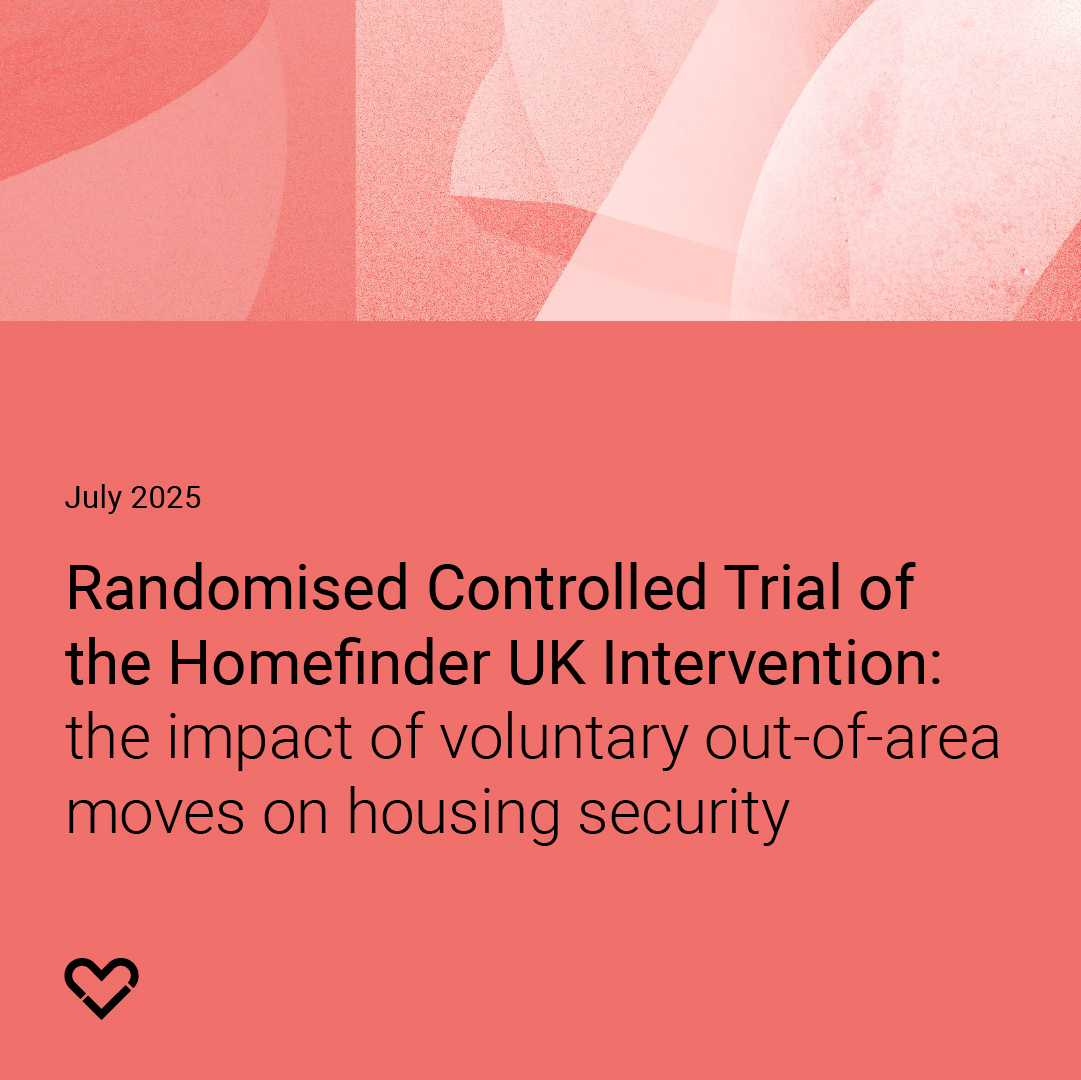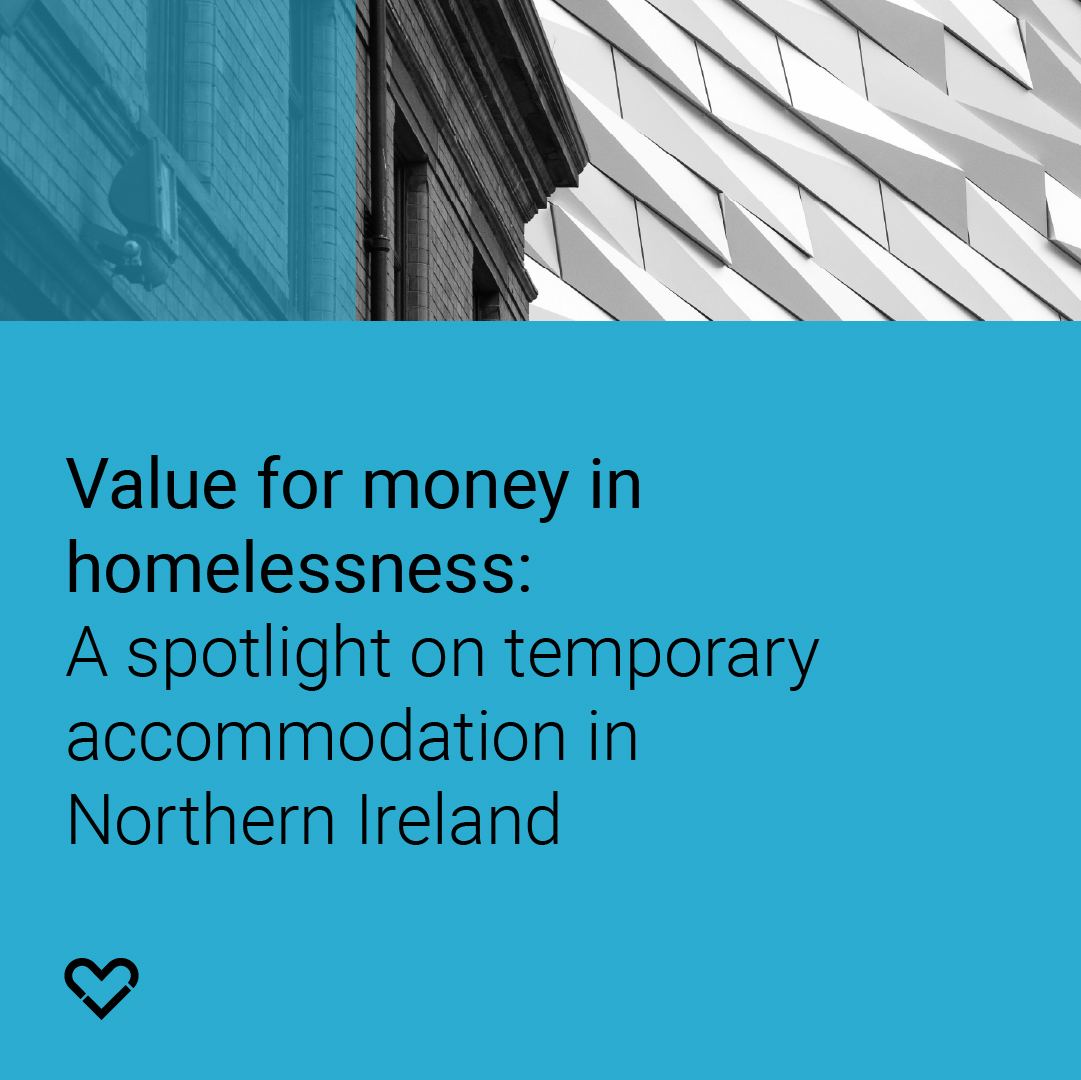Women, homelessness and violence: what works?
Outline of the study
This research examines the relationship between violence against women and homelessness and explores what interventions work best to help women who have experienced both. The study combines evidence from systematic reviews with personal accounts from 13 women with lived experience of homelessness and violence.
Drawing on evidence from the Centre for Homelessness Impact's Evidence and Gap Maps and innovative interventions in the UK and internationally, the study identifies approaches that show promise for preventing and addressing homelessness among women who have experienced violence.
Findings in brief
- Women’s homelessness and experience of violence are strongly linked: 1 in 5 women who have experienced violence become homeless, compared with just 1% of women who have not experienced violence
- 61% of women experiencing homelessness have also experienced intimate partner violence and 43% of women experiencing homelessness have also experienced violence from family members
- Women's experiences of homelessness are distinct from men's. Gender-based violence causes trauma and may link to additional support needs, meaning that homelessness services for women must be tailored to these needs
- There are significant gaps in accommodation and support for women experiencing homelessness and violence
- Only 10% of homelessness providers offer single-sex accommodation. Women who have experienced violence can feel profoundly unsafe in mixed environments, causing some to sleep rough instead.
- Women’s Aid indicate a 30% shortfall in refuge spaces in England
- Only 57 local authorities in England and two in Wales have temporary accommodation specifically for women outside of refuges
- There is a lack of support which enables women to stay in their home and requires perpetrators to move away
- Not all services for women experiencing homelessness and violence are gender and trauma-informed
- There is an over-focus on crisis responses to current violence and insufficient support for women with historic experience of violence.
- There are very few robust studies which focus specifically on interventions for women who have experienced homelessness and violence
- Most existing evaluations focus on psychosocial rather than housing outcomes
- Current evidence is largely limited to women in refuges escaping intimate partner violence, rather than women with historic experience of violence.
Recommendations in brief:
- Create more rapid rehousing programmes that offer immediate, unconditional access to secure accommodation for all women experiencing homelessness and who are currently and/or have previous experience of violence. This should include:
Long-term housing solutions, with intensive support as needed, such as Housing First programmes for women
Support to help women remain in their own homes, including through providing flexible financial assistance, The Making Safe initiative and Sanctuary schemes may offer valuable learning here
Gender-specific temporary accommodation
- Ensure all services working with women with experience of homelessness and violence are gender-informed. This should include clear guidelines for gender-informed care, similar to NICE principles of care and which would be a requirement for all commissioned homelessness services
- Implement trauma-informed approaches
- Focus on developing services which offer a preventative rather than crisis response,, through:
Early identification training and screening programmes. This could include expanding programmes, such as ‘Ask and Act’ in Wales
Creating culture change across public services to better recognise and respond to violence against women
Developing multi-agency responses that coordinate housing, health, and domestic abuse services.
- Developing robust mechanisms for collecting national-level data about women experiencing homelessness and violence
- Expanding the evidence base by using learning from UK and international evaluation studies and creating opportunities for Test & Learn trials
- Monitoring the impact of the Domestic Abuse Act 2021 and Homelessness Reduction Act 2017
- Developing policy responses that acknowledge women’s historic experience of violence, not just those at immediate risk.
No items found.





.jpg)

